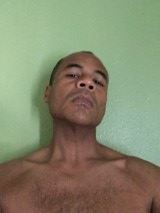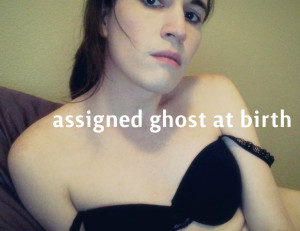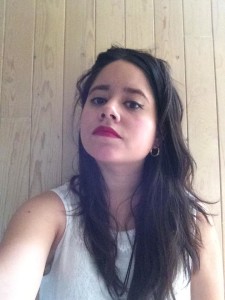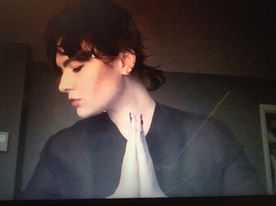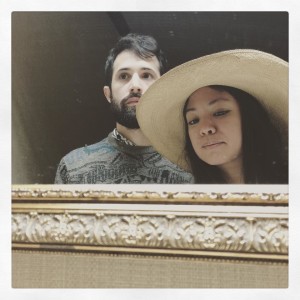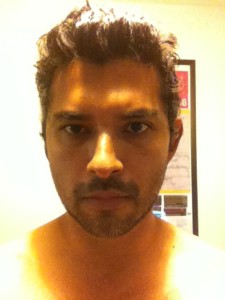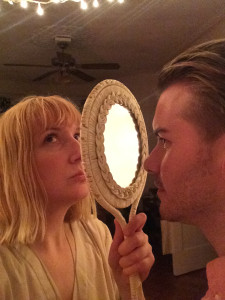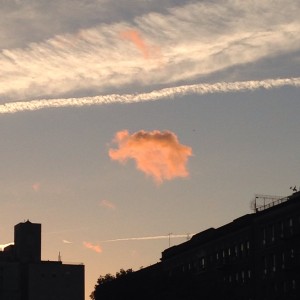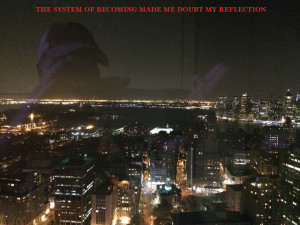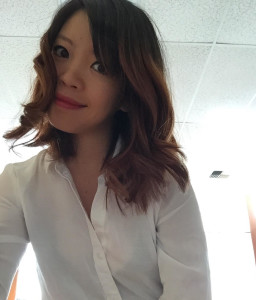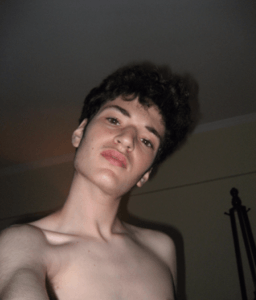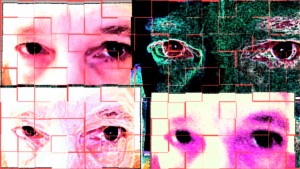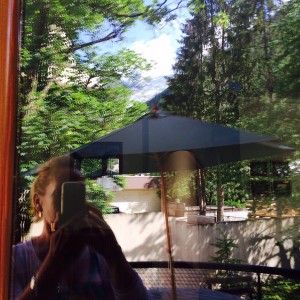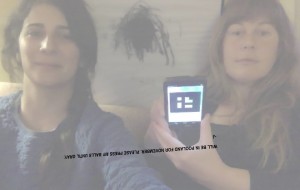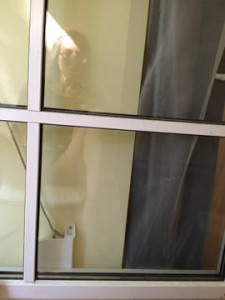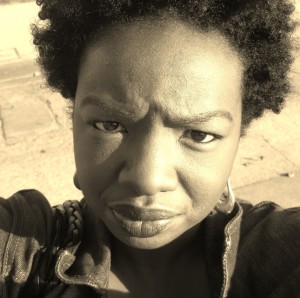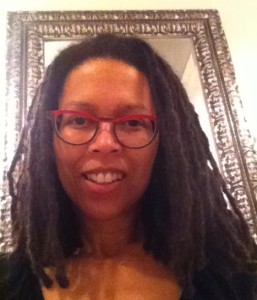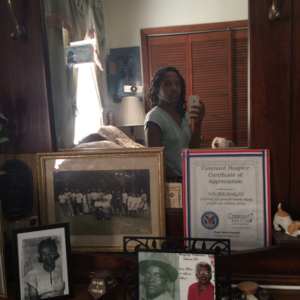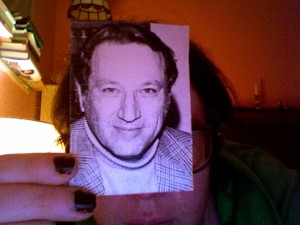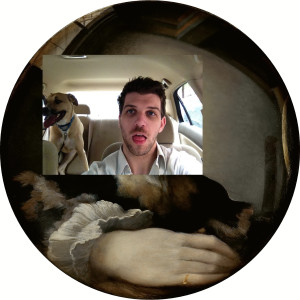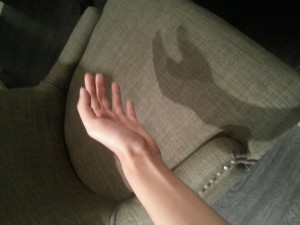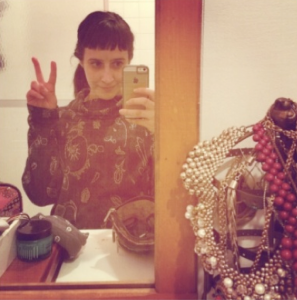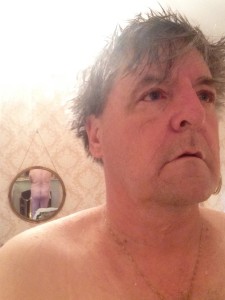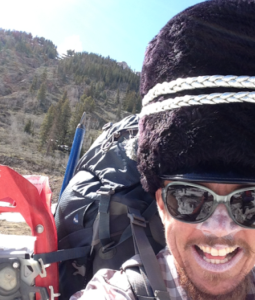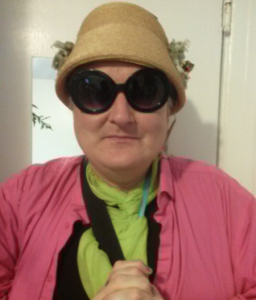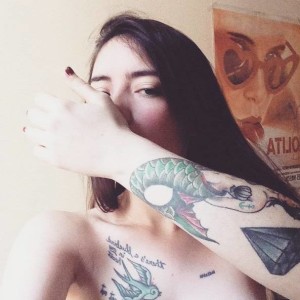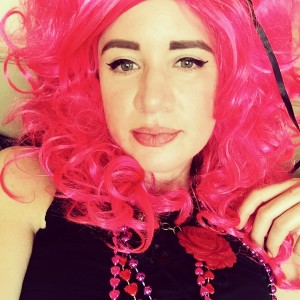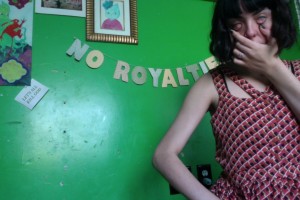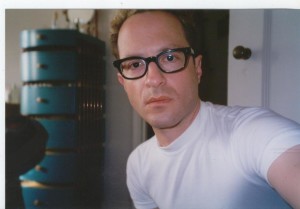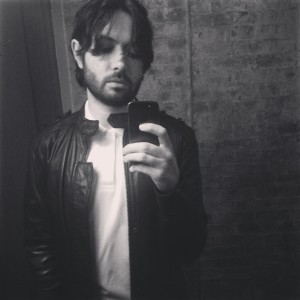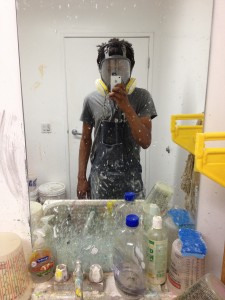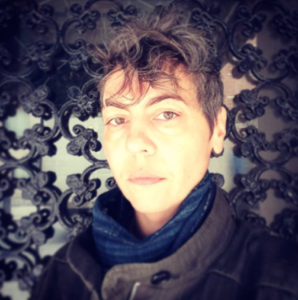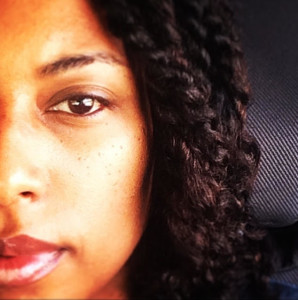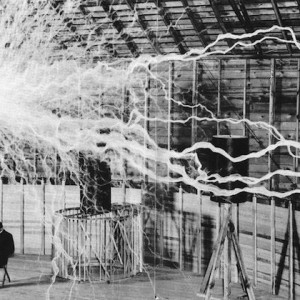What is the relationship between poetry and the selfie? This was one of the questions I sent a number of poets working in different modes. I said they could answer the question, or not, or if they wanted they could include some other type of text. I said they could interpret the term “selfie” as they saw it. I expected an array of interpretations and visions. The poets did not let me down. I was moved by each performance of the self, with their particular risks and vulnerabilities and joys and tragedies. I was fascinated by the ways in which the selfies expanded and warped with the accompanying texts, and how, the longer I looked, the selfies themselves became a kind of poetry, a song of the selfies. I then started to think about our inability to escape the performance of the self, either in language, or image, or in any other form we create—no matter how much one longs for the other, for the skies. What, or who, is waiting for us on the other side of the mirror? Perhaps to really see, we must first witness our selfie.
Eileen Myles
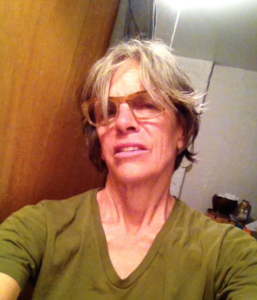
Well a poem might be the inside of the mind and the selfie is a portrait of the head that thunk. I was trying to woo a woman who lives in another city. So I was thinking about her and of course wondering what kind of distress and yet intactness would make me attractive to her. I don’t know why I endlessly appear in American Apparel t-shirts I bought when I was living in San Diego. Am I the only poet who doesn’t think about poetry all the time and just has a life and that is what my poetry is all about.
Ronaldo Wilson
I am thinking about the migratory, and the mask, what we wear to be seen, what we put on, in transit, the incomplete, here, just waking up, realizing what I hope to record: a series of transitions, what isn’t working, that is not to be gotten, nor to be reckoned for anyone’s satisfaction, attack, or query, but what I, and only I, discover as I meander in and from my home to where?
Joshua Jennifer Espinoza
selfies are a way for me, as a trans woman, to gain some control over how my image is presented to the world. when i am in public i have little to no control over how i will be seen or what sorts of reactions my body might elicit from others. this sense of having no control pervades my life to the point that i mostly feel alienated from my own body. recently i’ve been taking more revealing selfies and using them in my work. images like the one above feel to me like a hesitant and somewhat ambivalent assertion of a self that is fraught with all that being a trans body means in this world. i don’t know if selfies are inherently radical but they do play a role in my survival.
Ana Carrete
had been trying unsuccessfully to think i looked cute in selfies for days. had been failing. had been trying to take a picture of the gold hoops my mom gave me. they belonged to my grandma. my mom never wore them because she said she didn’t have the ears for them. i’d felt self conscious in the past about wearing hoops. finally decided to just “let go” and enjoy them. in this selfie you can see i’m staring at myself on the screen perhaps trying too hard to show off my hoops and hair.
Die Dragonetti
I document myself compulsively and how I take selfies is a facet of that; as such there are 100 versions of this pic in my Google drive. This is a picture of a picture that was frozen on my laptop screen. It was accidental, never meant to be a picture at all. I was about to Skype Bunny Rogers, so the webcam was on, and the computer froze on me, mid-action. You can see the reflections of my chromebook, iPod, and self taking the picture in it.
Feliz Lucia Molina
A selfie with someone who i am with everyday. a selfie with someone who sees me everyday. a selfie with someone who is another self of me.
another self with me. an other self.
Román Luján
For someone who almost never takes pictures of himself it’s funny how many unintended selfies I have on my computer. Most of them were taken when I clumsily opened the camera while trying to do something else. The green light appeared and, oh well, I just clicked the thingy. The morning I took this one I hadn’t slept well and I still hadn’t had coffee. I remember not being very happy about my incoming gray hair (I’m on better terms with it now though). You can’t see it but behind me there’s a poster of the Chilean poet Nicanor Parra—who, by the way, is a hundred years old—making fun of my serious look.
Ana Božičević
What were you thinking about when you took your selfie? What inspired you?
Screen as a two-way mirror, the kind through which you can step into some neverland. A twin planet, rendered somehow. We face the painting, mirror, window, phone. Taking a selfie, showing your face to someone, is entering a circuit of representation and reflection, our faces facing the screens that let us face us. Duckface and surprised-face as the masks of comedy/tragedy. The screen between a magic glass through which we can see each other, the photograph gazing back and so on, like if the two sides of the coin could face each other through its thickness. The coin might have value—we just don’t know what it is. I took a selfie about this with Ryan Doyle-May.
Becca Klaver
So much of being myself is spent looking out at the world; so little is spent staring in the mirror or flipping the cam around. Because I am a woman who walks through a city every day, I know my body is viewed by others more than it is by me. Made self-conscious, I pretend to window-shop just to make sure I don’t look terrible in the darkened reflection. But because I am a poet and full of longing, mostly I stare at the sky all the time, and sometimes whatever I see matches me. Pink, a color often derided, is also in nature everywhere, especially at sunset. Pink is all over my body—on the insides, too. I’m not a real #selfie poet. I’d rather look up and tell you what I see, and sometimes I see a floating pink puff I call my self.
Dawn Lundy Martin
I will be whatever you project onto me, your threat, your “hun,” your gal, your servant, your fuckhole, your job stealer, the one who snuck in when the door was unsupervised, your magic black, the stain in your breath, animal, object, thing. Though the selfie may be my presentation of my “self”—my understanding of, and desire for, an image that stands in for my “self”—you might believe you’ve already seen me [a priori], but you have not.
Jane Wong
I’m at a writing residency; I just got up; it looks like I’m about to eat my hair. Selfies for me are a reflection of how you want to see yourself. For me: the idealized version, the version that’s not drooling or picking out the goop from the corners of my eyes. It’s just one vision of self. I have another self that shows up in my poems: the one who uproots tulips from your yard, the one with olives in her purse (stolen from a fancy party), the one who chases some racist motherfucker down the street when he asks me to be his sex slave. This selfie and all my selfies are a reflection of my mother: smiling, sweet, collected, assured—but wild, defiant, vigilant, and vengeful underneath. I’m attracted to that teetering ambivalence.
Deborah Landau
I wrote the first section of The Uses of the Body sitting at this Paris window four summers ago. This is pretty much the first selfie I’ve ever taken. I’m thinking, “how the hell do I take a selfie.”
Felix Bernstein
What is the relationship between poetry and the selfie?
Poetry and social media is the mean parent, who demands that you give over your soul, emotions, and self on a daily basis, which you do, forgetting that you aren’t just giving, you are also designing/constructing, as you give, to meet her appetite.
What were you thinking about when you took your selfie?
I was thinking about how I had just one fleeting moment of erotic adolescent sublime, and it could not be enjoyed because I was already trying so desperately to milk it and re-present it, that it could never be mine. That I did not own my own nude image; the state did, since I was always already child pornography, doomed to be confiscated.
Can the selfie be a radical act?
A radical act is nothing more than a selfie. But a selfie is not a radical act. So the two are caught in a deadlock of passivity.
Charles Bernstein
There is no unconcealment. They’re only different degrees of concealing.
Erin Belieu
As every poem is at bottom a self portrait of a specific consciousness, I suppose every poem could be called some version of a selfie. At this moment in my life I’m in Europe, traveling in some of the world’s most beautiful places. At the same time my life back home has whirled apart, and my heart is good and truly broken. I’m wondering, as humans do, if it will ever mend. So the faceless image of myself wavering in the mirror, the ghost who is haunted, a spectre hidden in the Romantic/Gothic shadows of Mont Blanc, this feels an authentic portrait of myself in this place and time. And, of course, the selfie can be a radical act, if there are artists who embrace the form and expand its boundaries beyond the unconscious intentions of a moment.
Dodie Bellamy
This is me in my office, piled with books and eye make up accessories that I rarely use. I’m wearing my new Paige Taggart coral necklace, which means I’m feeling oceanic. I took this image with PhotoBooth, which I like because it makes you look like a still from an arty movie. Dodie Mumblecore.
Farnoosh Fathi
Anne Waldman
Icon & Metabolism, 2015
1. Poetry can be self-secret.
2. The metabolic meta-thrust, eye-hand arm coordination. Manjusri’s sword.
3. Illusion of control. Think you are solid not just a hairy bag of water… Maybe overused but tender between people you love & love you back. Observe people surviving particular ordeals letting someone know they still “exist.” Re-ification.
4. Poetry is a record of the sense perceptions moving… wrinkles of time. iPhones cost. Poetry cheaper.
5. Sure if it’s transmission. Image Nation.
Rebecca Wolff
Kima Jones
I wanted to look tough. I had been in Los Angeles less than 24 hours but I was ready to start my new life far away from my mother and home and everyone that I knew. It was hot and I wore a black dress, black boots, black stockings because black makes me feel sexiest and a denim jacket because denim makes me feel strong, leather cuffs because they give me edge, earrings because they complete me. Lipstick because it announces me. And my hair cut down low, some symbolic burden gone, so I could start this new chapter lighter and more free.
I was waiting for the bus because I can’t drive. It was hot as hell for January—hot to me having just moved from New York—and I was worried the bus would be late. The buses in LA are always late. I was unemployed and didn’t know the name or number of one cab company. Uber and Lyft weren’t a thing here yet. I had one poem published in the whole world and it was about a girl who only loved me sometimes.
I did not smile because tough girls don’t smile and I wanted to be tough. I have a great smile but I was too far away from my mother and not sure when I would see her again so I had to be tough. There were so many other writers with real work in the world and all I had was one poem about a woman who halfway loved me so I needed to be tough. I didn’t know anyone and didn’t have time for coffee that morning and the world felt lonely and tough.
I hardly take selfies but I wanted to always remember the day I waited for that bus. Hardly my first bus ride but a kind of first. I was in Los Angeles and feeling big and bad. I had poems to write and stories to write and worlds to create. I didn’t have a starting place. The world was so big, and I was alone. How to get to the end of the poem?
I was trying not to think of my on-again, off-again girlfriend. I was trying not to worry. I was hoping for hot coffee when I got across town.
I snapped the photo.
The sun was in my eyes but I could still see the bus crawling up Crenshaw Boulevard. I looked down at my cell phone to double check, and, yeah, miraculously, for once, the 210 was on time.
Evie Shockley
framed! (or, selfie-portrait of the poet as a bad photographer) (or, who cares who’s the fairest of them all?)
Saretta Morgan
I never got to know my paternal grandfather (seated here with his wife and 17 of their 18 children), so I’m fascinated by the archive of his bedroom. The walls and drawers preserved with objects I assume he found significant to an understanding of himself, alongside seemingly residual documents: the drivers license, utility receipts, credit statements, hospice certificate. The bureaucratic residue each of us accumulates, which, like the selfie, compiles a strangely quantifiable and seemingly objective narrative to support (or at times, contradict) our notions of self by distilling the complexity of our intimate and material lives into artifacts that are easily made public and knowable.
Dorothea Lasky
I feel connected to selfie culture, because I am a big user of Instagram and because the self is very important to me and my artwork. I often feel part of a dissociated or fractured self and I feel that the self-portrait traditionally, and now the selfie, is a way to understand how all of these parts can come together into a whole human being. I am also a big fan of performance, and of course the selfie provides us with an everyday stage with which we can show ourselves off in many costumes.
I chose my selfie here, because I was thinking about what might make me feel uneasy to share with a big crowd, as this is never a feeling I have anymore when I share a selfie online. By the time I have shared something, I have gone through 20 or more so “takes,” used a filter, and have felt like the picture was ok for public consumption. I took the above picture about seven years ago, when I was home in St. Louis. It is a picture of my father, most likely from the early 70s. When I took the picture, I didn’t have a cell phone with a reliable camera (it wasn’t an iPhone) and so I took the photo on my computer’s PhotoBooth. I wasn’t trying to really take a photo of myself—I was more just trying to take a photo of the photo so I would have a digital copy. I remember at this time, I had just met my now-husband Thom Donovan, and we were in the ferocious stage of emailing each other 20 times a day. I sent him the picture, along with others like it of me holding family photos. I remember he told me it reminded him of the work of an artist, who took photos of herself holding photos up to her head, almost as if they were spiritual medals.
Like the photo said: I carry this photo with me through eternity. In this photo, I think I am doing that, I am saying this photo is me—I am unveiling an imperfect layer for you that I carry with me everyday but that you don’t see exactly. It might be important to point out too that when I took this photo, now I’ll call it a selfie, my father was dying. I think going forward I might be interested in taking selfies that unveil things, that make me feel weird to share. I don’t know if this would be a radical or nonradical act—but it might push into the uncanny, at least for me. And that’s what I want Internet culture to do again, if it can.
Paul Legault
In poetry, selfies are as traditional as sonnets. I recently attempted to rewrite John Ashbery’s ‘Self-Portrait in a Convex Mirror’ from memory. Ashbery’s description of Parmigianino’s self-portrait becomes a sort of self-portrait of Ashbery, and my parody of his poems inevitably doubles-over as a self-portrait of, well, myself. All art is a form of self-expression—however abstracted/distorted/recalled by the mirror/medium/iPhone.
The subject objectifies itself in order to change the subject. What were we talking about? Oh, yeah: me. By me I mean you.
When you take a photo of yourself, you don’t have to ask permission. But you do anyway. The version of yourself you request the favor of posing with is yourself in mascot form. Like if there were a football team called ‘The Pauls,’ and its cheerleaders all wore masks of my face, and I walked up to one of them and asked if he wouldn’t mind posing for a photo with me.
A selfie is the opposite of surveillance. If you’re overseen in your natural habitat, you look like however you happen to look. You don’t ask if you look alright. You just look like you. Because you’re always doing that. Just sometimes you do that for a reason.
Hannah Sanghee Park
Caption: Synecdoche
1. A living hand, warm and capable enough, sent the poem and selfie into being.
2. “This Living Hand” Lately I’ve been thinking of when I first learned certain words, and what definitions resonated. Synecdoche was one I could never forget—the example being a hand for a human. From there, the train of thought began. The example was cool and spooky, and the Keats poem, “This Living Hand,” is as well. I tried to make the hand look disembodied, and to create a more substantial shadow dinosaur. Hand, chair, shadow puppet, choice of presentation—all parts of myself.
3. In the right context, I don’t see why not.
Marisa Crawford
What is it that I hate so much about leaving the poem be? About trusting that I can write something from my gut and that it can be good without necessarily tearing it apart and putting it back together into a kind of rearranged Frankenstein monster? Whatever it is, it’s a similar thing that makes me feel self-conscious when I turn the camera on my phone around to photograph myself. Something about showing an imperfect version of myself. My face without makeup, my face when it’s crying, my face when I’m sweating through a workout or struggling with a poem or rushing to get to work or eating or feeling deeply and totally boring.
Kevin Killian
At a crazy hotel in Providence and getting ready to receive a poet whom I planned to photograph nearly naked, I saw a mirror hung so low you couldn’t help but wonder, was this mirror placed so as to allow guests an intimate check of their genitalia? It flashed on me that using this mirror I might be able to photograph X with his face and his butt in the same frame—ever my goal. I stepped in and tried to see if it could be made to work, thus appearing in my own selfie as a stand-in for another; literally a body double. In that light I began to wonder if poetry could be made up of a series of John the Baptist-like pictures that somehow prefigure the “real thing,” an event in poetry which would render it pointless. Can the selfie stand apart from the well-rehearsed complaints people like Susan Sontag make about the photograph—that it can never be anything more than a representation of a reality dead at the moment of conception? Mightn’t it be a spell cast about the future? I think so; however, whether that’s a radical act or not IDK, wouldn’t bet my ass on it.
TC Tolbert
As a trans and genderqueer person, poetry has been (and continues to be) the means through which I made (am making) my body (and my life). Not a reflection, so much, of what is as a collaboration between what is, what has been, and what could be. The selfie, or at least this one in particular, is a celebration of all that we (me and poetry) have become.
CACONRAD
This caption makes its way to you on the word moist. Like, I’ve got the moist cookies in the room.
Sommer Browning
I took a photo in a bathroom of someone who decidedly refused to smile. I took a photo while thinking this is my normal face. I took a photo of someone who gets off at five but doesn’t stop working. I took a photo of my mother’s daughter and my daughter’s mother. I took a photo of someone who tried hard to not be cheated on and who, in the end, was cheated on. I took a photo of someone who should always pee before she jumps, someone who can’t believe she wrote a book yet looks for her name in Denver Public Library’s catalog. I took a photo of someone who has been heckled, of someone who came back loudly with “SHUT UP,” of someone who thinks this might be the funniest thing she’s ever done. I took a photo of someone who perpetually wants to lose ten pounds but would never wish for it because the genie would simply cut off her head and say, There you go, and then this person, this person I took a photo of, wouldn’t be able to read anymore and then this person, this person I took a photo of, would die. So, I’m not sure I took a selfie.
Luna Miguel
What is the relationship between poetry and the selfie?
When we write poems we feel insecure, naked and creative. When we take selfies we experience the same feeling. The selfie is a kind of “song of ourselves.”
What were you thinking about when you took your selfie? What inspired you?
I don’t really know. Sometimes when I take selfies I experience fear. Sometimes self-acceptance. Sometimes I take them because I want to feel prettier. Sometimes want to share a feeling with my friends, or my followers, or my stalkers. I think also that sometimes a face can be more expressive than language. A writer has to express with her words, and with her body. Words are nothing without the body.
What do you make of the “selfie” phenomenon of our times, particularly as it relates to poets and poetry?
It’s not just a phenomenon. Like I said before, this is a way to express ourselves. Historically we have used different ways to share our feelings with the rest of the world. Now we do it with the cameras on our phones.
Can the selfie be a radical act?
Of course, if that’s our intention. For example, in the past few years I feel selfies and social networks like Instagram have helped a lot of women to react to the established beauty canon.
Lara Glenum
Poems, like selfies, are occult technologies. Both strive to appear spontaneous; both use exacting staging and artifice to create anti-histories that queer categories like the “real” and the “natural.” Prone to viral transmission, selfies and poems are evanescent acts that flare, ephemeral; they super-saturate our visual field, scrambling cultural codes, dilating the light-wasted eye. They are trash piling up at the feet of the Angel of History, mimicking amusing baubles, stirring anarchic cravings.
Monica McClure
The selfie is an intermittent neurosis.
Mira Gonzalez
Every time I look at myself in a photo I see that guy from The Muppets who has glasses but no eyes.
Wayne Koestenbaum
I took this selfie long ago, when I was still writing poems on my IBM Correcting Selectric III typewriter. The word “selfie” hadn’t yet been invented. In this photo, I’m wearing a white t-shirt bought at Raymond Dragon, on Seventh Avenue. Raymond Dragon, a porn star, became a fashion designer. I became a painter, eventually. My poems have always been self-probing. I don’t believe that “self” is naive or regressive. At Raymond Dragon, the fitting rooms didn’t have doors or drapes. Trying on clothes at Raymond Dragon was a stanzaic experience, boxy as a paragraph. Passersby on Seventh Avenue could see into the changing rooms, via mirrors. Wrongly I pronounced “Dragon” as if it were a French word, rhyming with “Dijon,” “Lyon,” or “Toulon.” When I took this selfie, if it is indeed a selfie, I tried to look like a tough guy.
Alex Dimitrov
I love the selfie. It’s an act of empowerment. It allows you to direct the gaze and to me it says “I’m in control.” My independence is my favorite thing about my personality, which is my favorite thing about the selfie—its ability to showcase that, and for any individual.
Jibade-Khalil Huffman
What inspired your selfie?
I took this selfie at my day job, I suppose, because poetry has as much or maybe more to do with day jobs than anything.
What is the connection between poetry and the selfie, if anything?
I think the presumption that someone would want to read something so supposedly connected to an individual self, expressing or exclaiming or merely reporting is very much like the presumption that someone would want to see a kind of immediate and personal history (as opposed to art that is “more considered,” or borne out of more “serious” contexts).
Can the selfie be a radical act?
The selfie is a kind of distillation in that it reduces photography and specifically the self portrait into something more immediate. The selfie, in this way, can become a space for radical expression and one that is, or can be, more effective (or, at least, a different kind of effective, whatever effective means) in this kind of trickster-ism, for speaking incendiary thoughts in the guise of the banal and seemingly superficial.
Stacy Szymaszek
The door behind me is the door into my therapist’s building. Almost every week for the past year, I’ve taken a photograph of myself either in front of this door or in the “hall of mirrors” leading to the elevator. I bought my first self-help book when I was 14. I’m never at peace. I’m always wishing. I like change. I want to change. I want it to be self-evident. The door is unusually heavy because of the wrought iron over the glass. I have to buzz, then bend my knees a bit and throw all of my weight between shoulder and hip into the door to open it. Sometimes I don’t get it on my first try and I have to buzz a second time. Someday I will look at all the self-portraits in this series together, like a flipbook. In the compression of time there might something remarkable to see.


